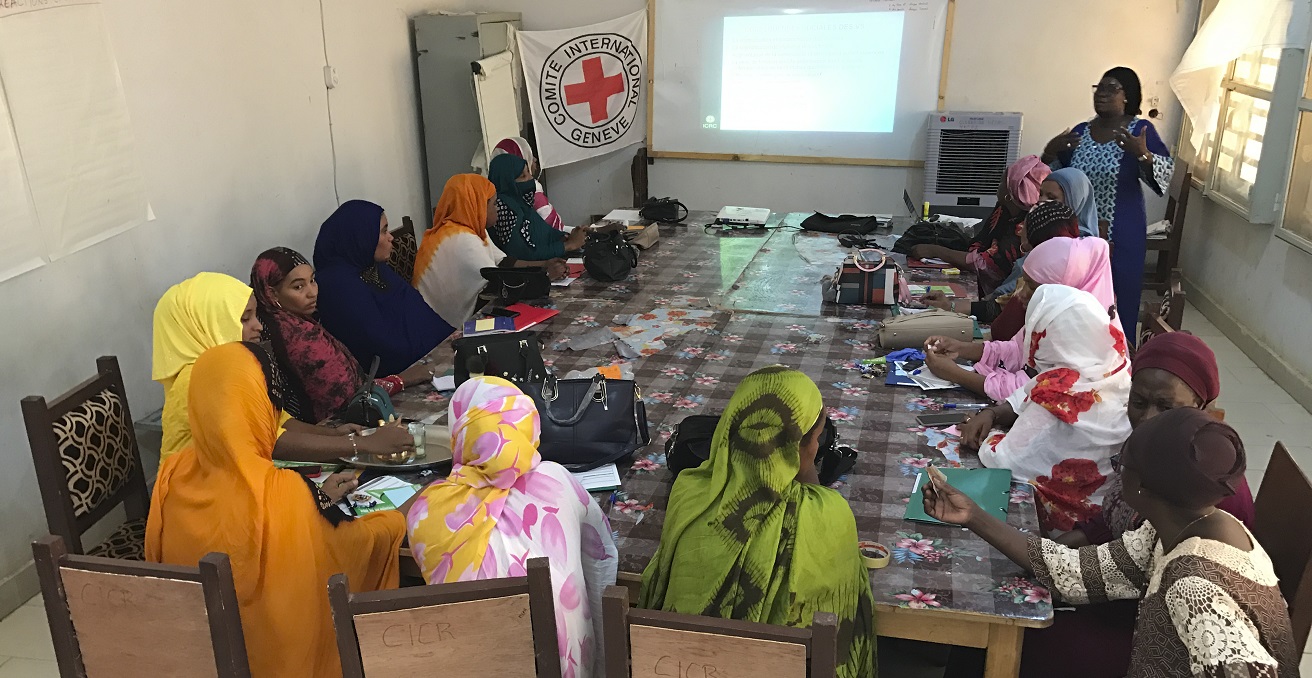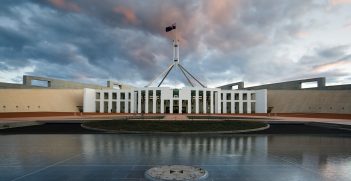Sexual Violence in Armed Conflict: Can We Prevent a COVID-19 Backslide?

COVID-19 has exacerbated levels of sexual and gender-based violence (SGBV). It is vital to ensure that pertinent legal protection and healthcare resources are available to prevent and respond to SGBV.
Emergencies and crises have a well-documented history of deepening structural inequalities and exacerbating risks. The COVID-19 pandemic is no exception. Right now, we find ourselves faced with a frightening dichotomy: an increase in sexual violence in places affected by conflict and violence, coupled with a reduction of services available for victims and survivors. SGBV and its effective prevention must be addressed as part of response to the COVID-19 and all health pandemics.
As always, the 16 Days of Action Against Gender-Based Violence is a testament to the strength and resilience of individuals and communities. It is also, however, a stark reminder of the current magnitude of sexual and gender-based violence as a global crisis. Almost two years into the COVID-19 pandemic, we are witnessing a tragic backslide in the progress gained on preventing and responding to SGBV in humanitarian settings. We can’t afford to let this happen.
Victims and survivors of SGBV are diverse, including not only women and girls, but also men, boys, and those who are marginalised due to their sexual and gender identities. The global SGBV crisis requires a survivor-centred prevention and protection approach in all humanitarian activities, and international humanitarian law (IHL) provides powerful protections to achieve this.
A Shadow Pandemic and a Shrinking Space to Help
When we layer crisis atop crisis – such as an armed conflict with a public health emergency in the context of a global climate emergency – the risks of sexual and gender-based violence spiral, while the available support shrinks and becomes siloed or fragmented.
Despite the rise in needs, service delivery – by the International Committee of the Red Cross (ICRC) or other organisations – has been impacted by the pandemic, for a range of reasons including financial, human, and technical resources being directed to the COVID-19 response and confinement.
For the victims and survivors, this means disruptions to their existing care and support, lower chances of reaching healthcare facilities in the critical 72-hour post-rape window of time, and limited access to mental health and psychosocial services. The solution is often remote or phone-based, which could put victims and survivors’ personal safety or financial stability at risk.
Within the ICRC, we are seeking to address these gaps by updating referral pathways and sharing them with communities via radio broadcasts, through new partnerships with national Red Cross and Red Crescent Societies to address stigma, by continuing discussions with weapons bearers about sexual violence as a violation of international humanitarian law (IHL), and by ensuring that the primary health care services the ICRC supports can continue to offer lifesaving care.
How Can International Law Help?
IHL, or the law of armed conflict, is unambiguous on the matter of sexual violence. Iit is prohibited in both international and non-international armed conflicts by a number of rules within the Geneva Conventions, as well as their additional protocols, and its prohibition is a rule of customary international humanitarian law.
To be prohibited by IHL, an act must have a sufficient connection – often referred to as a “nexus” – with an armed conflict. Certain acts of SGBV may occur during an armed conflict that do not have this nexus, thereby falling outside the scope of IHL. But the law on sexual violence that occurs during an armed conflict does not end with a reading of IHL. International human rights law sets out a complementary framework relevant to SGBV in the context of the global COVID-19 pandemic. Types of gender-based violence beyond the scope of IHL, such as intimate-partner and domestic violence – which nevertheless continue to occur and indeed have been shown to worsen during armed conflicts and other crises such as pandemics – may fall under states’ positive obligations under human rights treaties such as the International Covenant on Civil and Political Rights (ICCPR) and the Convention on the Elimination of All Forms of Discrimination against Women (CEDAW).
Furthermore, in situations of armed conflict, IHL requires that the wounded and sick, including victims and survivors of sexual violence in need of medical care, must receive, to the fullest extent practicable and with the least possible delay, the medical care and attention required by their condition. It further provides that no distinction may be made among the wounded and sick that is founded on any grounds other than medical ones. Nondiscrimination within human rights frameworks means that a victim or survivor of sexual violence has the right to access, without discrimination, timely and appropriate health care. The Committee on Economic, Social and Cultural Rights has underlined that the right to sexual and reproductive health is an integral part of the right to health and includes an obligation to guarantee physical and mental health care for survivors of sexual violence.
By laying out the facts, the picture becomes clear. SGBV is harmful, unlawful, and widespread. Much more should be done to prevent it and to address the needs of its survivors, including to safeguard the good work in this regard which is now under threat. We have powerful legal protections that protect against SGBV and guarantee healthcare access for survivors, even in times when public health measures are in place, including during lockdowns. Let’s use them.
To prevent a COVID-19 backslide, it is now more urgent than ever to ensure legal protections are realised on the ground. For the ICRC, the recent 16 Days campaign is about asking states to commit to international law, both on the prohibition of SGBV and on access to health care, without discrimination, and ensuring that national laws are both harmonised with it and are effective. Regarding this, the ICRC have created a checklist for domestic implementation of IHL prohibiting sexual violence, which includes definitions, accessibility, and special measures of protections. This tool was created to identify gaps within domestic legislation and summarises state obligations to prevent and respond to sexual violence in their existing laws.
The 16 Days campaign is also about making sure that survivors of sexual violence have access to healthcare without discrimination, including by evaluating whether mandatory reporting is working in favour of their rights, and the rights of healthcare workers. Meanwhile, sexual and reproductive health care, mental health and psychosocial support, and protection services for survivors of sexual violence are and will remain an ICRC priority, and it will continue to engage in a dialogue on sexual violence in conflict as a war crime.
An earlier version of this article was published on the Humanitarian Law and Policy blog in 2020.
May Maloney is ICRC’s Addressing Sexual Violence Adviser based in Geneva. She has more than a decade’s experience addressing sexual and gender-based violence, gender and diversity and social inclusion in the human rights, community development, torture and trauma and humanitarian fields.
This article is published under a Creative Commons Licence and may be republished with attribution.





